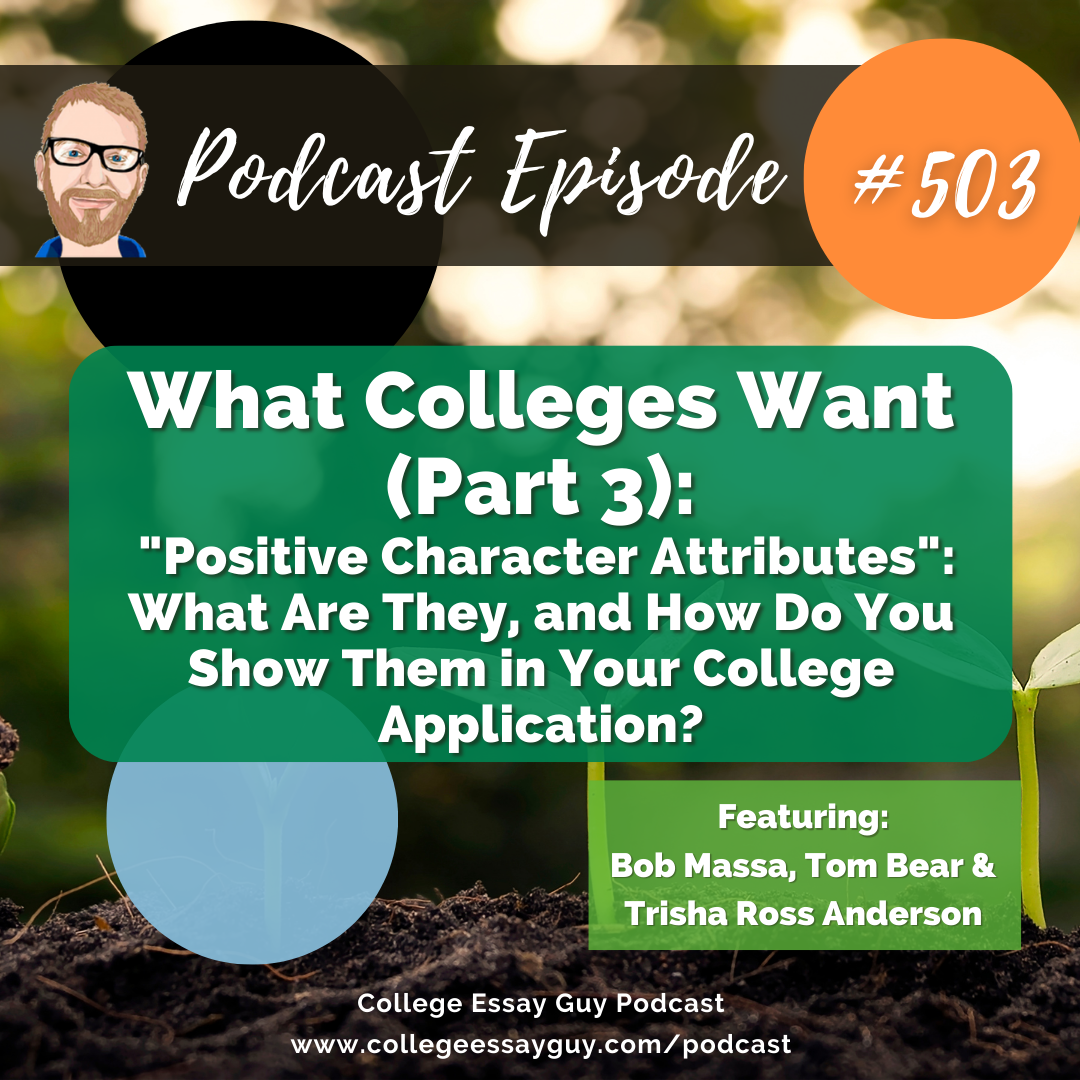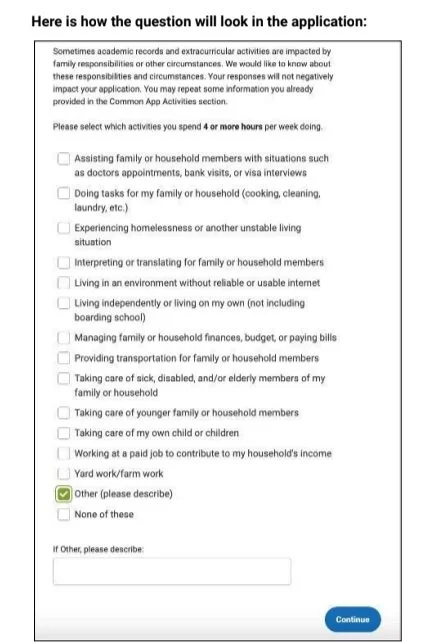Listen Here
SHOW NOTES
On today’s episode, Ethan is joined by Christine Bowman, Assistant VP for Admission at Southwestern University. In part 6 in our series on What Colleges Want, Ethan and Christine get into:
What is demonstrated interest and how do colleges track it?
How important is demonstrated interest to a student’s chance of getting in?
How might students find out if a particular school considers demonstrated interest in their admission review?
What are some practical ways you can demonstrate your interest to colleges?
Christine Bowman is the Assistant VP for Admission at Southwestern, where she oversees the admission department to set enrollment and retention philosophies. She has a Masters in Higher Ed Administration from UT-Austin, was the Co-Chair for the 2007 NACAC National Conference in and has served two terms as the Chair of the Colleges that Change Lives Board of Directors (see last season’s episode with Ann Marano for more on CTCL’s work). She currently serves on the advisory board of ROCA-NM (Rural Opportunities for College Access) and, with almost 30 years of experience in the admission profession, Christine believes in guiding students to find the right college fit and regularly gives presentations encouraging a stress-free college search process.
We hope you enjoy the conversation!
Play-by-play
2:15 - What is demonstrated interest?
5:00 - Why might demonstrated interest be important to colleges?
8:22 - What is yield?
11:24 - How can students demonstrate interest for a particular school?
15:17 - What can colleges track?
18:52 - For whom does demonstrated interest matter most?
23:47 - How to “break up” with a college
27:05 - What are some practical tips for students as they reach out to a college?
30:10 - How might an admissions officer use demonstrated interest?
32:58 - What ways can students demonstrate interest without visiting campus?
37:24 - What is the difference between early action, early decision, and regular decision?
40:25 - How important is the college interview?
48:10 - What can parents do to support their students during this process?
53:02 - Closing advice for parents, students, and counselors
ResourceS
A Behind the Scenes Look at Demonstrated Interest w/Christine Bowman (Southwestern University)
How to Decide Whether to Apply Early Action (EA) or Early Decision (ED)
CEG Podcast Episode 411: Finding Your Why, What a Liberal Arts Education Really Is, and How to Figure out What You Actually Want w/ Ann Marano (CTCL)










